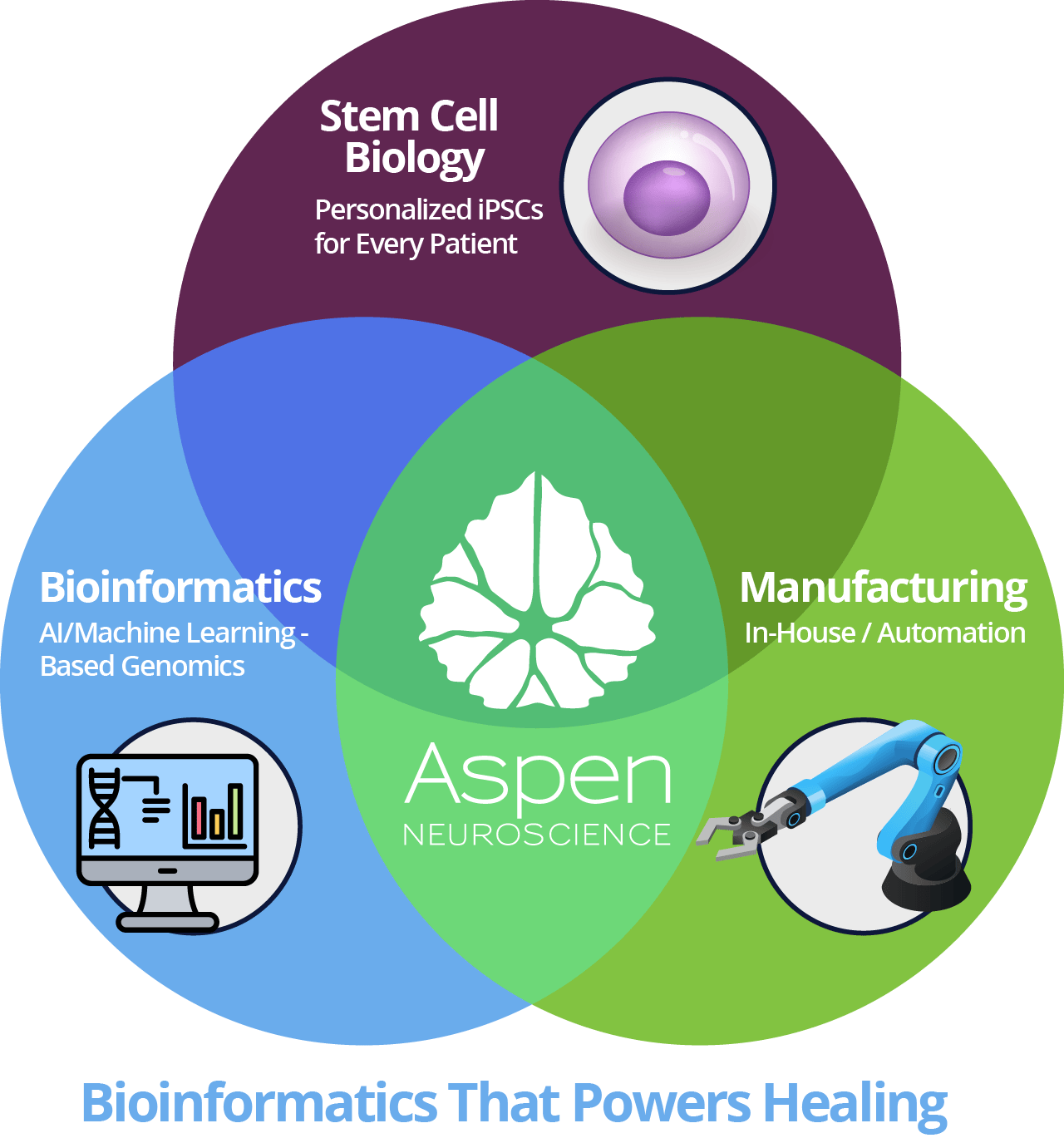Transforming Parkinson’s Care
Aspen Neuroscience was founded to change the lives of people with Parkinson’s disease. Our team combines scientific expertise and patient advocacy to develop therapies that go beyond symptom management—aiming for real breakthroughs.
Regenerative Therapy for PD
By the time PD is diagnosed, about half of the dopamine neurons in the brain are already lost. Aspen Neuroscience is developing autologous cell replacement therapy—using a patient’s own cells—to restore dopamine function and rebuild neural networks.

Stem Cell Biology Meets Genomics
Aspen uses skin cells to create induced pluripotent stem cells (iPSCs), which are then transformed into dopamine-producing neurons. Aspen’s platform integrates bioinformatics, machine learning, and genomics to ensure safety and precision.

Autologous Manufacturing Process
Aspen’s process starts with a skin biopsy, reprograms cells into iPSCs, and differentiates them into dopaminergic neuronal pre-cursor cells (DANPCs), the therapeutic neuron. These are transplanted into the brain to replace damaged cells, with quality checked at every step using proprietary genomic tests.

Our Differentiated Approach: Three Pillars of Innovation
Manufacturing Platform
We use a proprietary process to turn a patient’s skin cells into iPSCs, then into dopaminergic neuronal precursor cells (DANPCs). Machine learning–guided genomic quality control ensures safety and consistency. Cryopreserved cells are ready for immediate use, streamlining surgery.
Therapeutic Platform
ANPD001 is a personalized, autologous cell therapy that avoids immune rejection and eliminates the need for immunosuppressive drugs. This approach expands access and reduces risks, with promising early clinical results.
Precision Delivery System
Our dosing system, guided by imaging technology, enables accurate and minimally invasive cell transplantation, making the therapy practical for real-world clinical use.
A Closer Look: Autologous vs. Allogenic
Autologous cell therapy uses a patient’s own cells, which means no immune suppression is needed and there’s minimal risk of rejection or genomic instability; this approach enables proper synaptic connections and is more accessible for patients with pre-existing conditions. In contrast, allogeneic therapies use donor cells, requiring immune suppression that can burden patients and physicians, increase the risk of rejection, and raise the chance of mutations due to large-scale cell expansion. Aspen’s autologous strategy stands out for its personalized, regenerative potential and safety advantages over allogeneic methods.
Aspen delivers
Bioinformatics Advantage
Aspen’s machine learning–based genomic assays (PluriTest®, NeuriTest™, GraftTest, DopaTest) ensure cell safety and quality at every stage, overcoming patient variability and supporting personalized therapies.
Why Aspen Stands Apart
Unlike donor-based (Allogeneic) therapies, Aspen’s autologous approach uses each patient’s own cells, avoiding immune rejection and immunosuppression risks. Automation, robotics, and AI make our process efficient, scalable, and cost-effective.
Clinical Progress
Aspen has launched ASPIRO Phase 1/2a clinical trial of ANPD001, the first multi-patient, multi-center autologous cell therapy trial for Parkinson’s. ANPD001 has received FDA Fast Track designation. The company continues to collect and report trial data, with long-term follow-up to 15 years.